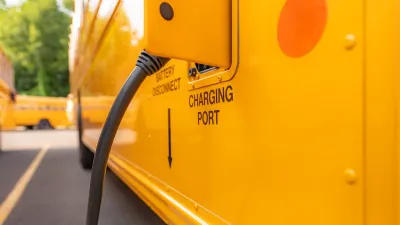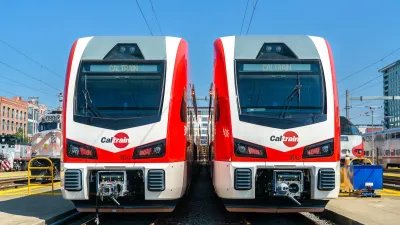Lauren Gravitz describes an unconventional solution to combat climate change, encouraging "countries with means" to "buy up coal, oil, and other deposits while they’re still in the ground--then leave them there."
Bard Harstad, an economist at Northwestern University, thinks that current programs aimed at combating climate change by forcing decreases in consumption are exactly the wrong way to solve the problem. According to Harstad, "The problem is that when some countries decrease their use of fossil fuels, the decreased demand leads to decreased prices. And cheaper fuel means that non-climate coalition countries--which are then buying dirty fuel at lower cost--have no incentive to invest in alternative energy technologies like solar and wind. As a result, their carbon emissions actually increase, a problem known in the field as carbon leakage."
This solution isn't as off-the-wall as it may initially seem. A similar model has been employed to good effect for protecting tropical rain forests. "The World Bank, together with the United Nations, created their REDD program--Reducing Emissions from Deforestation and Forest Degradation--which, by offering money and other incentives to developing countries in return for the preservation of their forests, created a financial value for the carbon contained in the forested land."
Harstad believes that retaining the value of carbon fuels but keeping them contained underground is a cost effective route [PDF] to combating climate change, and one worth taking.
FULL STORY: To Combat Climate Change, Buy More Coal

Alabama: Trump Terminates Settlements for Black Communities Harmed By Raw Sewage
Trump deemed the landmark civil rights agreement “illegal DEI and environmental justice policy.”

Planetizen Federal Action Tracker
A weekly monitor of how Trump’s orders and actions are impacting planners and planning in America.

The 120 Year Old Tiny Home Villages That Sheltered San Francisco’s Earthquake Refugees
More than a century ago, San Francisco mobilized to house thousands of residents displaced by the 1906 earthquake. Could their strategy offer a model for the present?

In Both Crashes and Crime, Public Transportation is Far Safer than Driving
Contrary to popular assumptions, public transportation has far lower crash and crime rates than automobile travel. For safer communities, improve and encourage transit travel.

Report: Zoning Reforms Should Complement Nashville’s Ambitious Transit Plan
Without reform, restrictive zoning codes will limit the impact of the city’s planned transit expansion and could exclude some of the residents who depend on transit the most.

Judge Orders Release of Frozen IRA, IIJA Funding
The decision is a victory for environmental groups who charged that freezing funds for critical infrastructure and disaster response programs caused “real and irreparable harm” to communities.
Urban Design for Planners 1: Software Tools
This six-course series explores essential urban design concepts using open source software and equips planners with the tools they need to participate fully in the urban design process.
Planning for Universal Design
Learn the tools for implementing Universal Design in planning regulations.
Clanton & Associates, Inc.
Jessamine County Fiscal Court
Institute for Housing and Urban Development Studies (IHS)
City of Grandview
Harvard GSD Executive Education
Toledo-Lucas County Plan Commissions
Salt Lake City
NYU Wagner Graduate School of Public Service





























